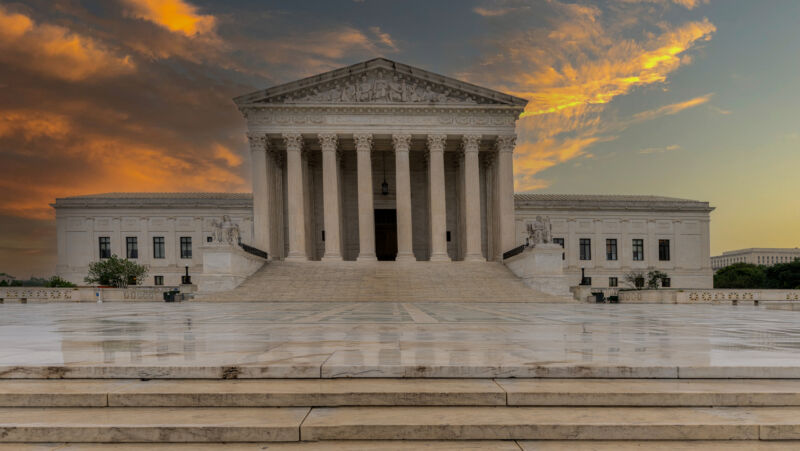
There are some circumstances the place authorities officers are allowed to dam individuals from commenting on their social media pages, the Supreme Courtroom dominated Friday.
In accordance with the Supreme Courtroom, the important thing query is whether or not officers are talking as personal people or on behalf of the state when posting on-line. Issuing two opinions, the Supreme Courtroom declined to set a transparent customary for when private social media use constitutes state speech, leaving every distinctive case to be determined by decrease courts.
As an alternative, SCOTUS supplied a check for courts to determine first if somebody is or isn’t talking on behalf of the state on their social media pages, after which if they really have authority to behave on what they put up on-line.
The ruling means that authorities officers can block individuals from commenting on private social media pages the place they focus on official enterprise when that speech can’t be attributed to the state and merely displays private remarks. Which means that blocking is appropriate when the official has no authority to talk for the state or train that authority when talking on their web page.
That authority empowering officers to talk for the state may very well be granted by a written legislation. It may be granted informally if officers have lengthy used social media to talk on behalf of the state to the purpose the place their energy to take action is taken into account “well-settled,” one SCOTUS ruling mentioned.
SCOTUS broke it down like this: An official is perhaps seen as talking for the state if the social media web page is managed by the official’s workplace, if a metropolis worker posts on their behalf to their private web page, or if the web page is handed down from one official to a different when phrases in workplace finish.
Posting on a private web page may additionally be thought-about talking for the state if the knowledge shared has not already been shared elsewhere.
Examples of officers clearly talking on behalf of the state embody a mayor holding a metropolis council assembly on-line or an official utilizing their private web page as an official channel for feedback on proposed laws.
As a result of SCOTUS didn’t set a transparent customary, officers threat legal responsibility when blocking followers on so-called “combined use” social media pages, SCOTUS cautioned. That legal responsibility may very well be diminished by protecting private pages totally separate or by posting a disclaimer stating that posts signify solely officers’ private views and never efforts to talk on behalf of the state. However any official utilizing a private web page to make official feedback might expose themselves to legal responsibility, even with a disclaimer.
SCOTUS check for when blocking is OK
These clarifications got here in two SCOTUS opinions addressing conflicting outcomes in two separate complaints about officers in California and Michigan who blocked followers closely criticizing them on Fb and X. The decrease courts’ choices have been vacated, and courts should now apply the Supreme Courtroom’s check to problem new choices in every case.
One opinion was temporary and unsigned, discussing a case the place California dad and mom sued faculty district board members who blocked them from commenting on public Twitter pages used for campaigning and discussing board points. The board members claimed they blocked their followers after the dad and mom left dozens and typically a whole lot of the identical actual feedback on tweets.
Within the second—which was unanimous, with no dissenting opinions—Justice Amy Coney Barrett responded at size to a case from a Fb consumer named Kevin Lindke. This opinion offers various steerage that courts can apply when contemplating whether or not blocking is acceptable or violating constituents’ First Modification rights.
Lindke was blocked by a Michigan metropolis supervisor, James Freed, after leaving feedback criticizing town’s response to COVID-19 on a web page that Freed created as a school pupil someday earlier than 2008. Amongst these feedback, Lindke known as town’s pandemic response “abysmal” and instructed Freed that “town deserves higher.” On a put up displaying Freed selecting up a takeout order, Lindke complained that residents have been “struggling,” whereas Freed ate at costly eating places.
After Freed hit 5,000 followers, he transformed the web page to mirror his public determine standing. However whereas he primarily nonetheless used the web page for private posts about his household and all the time managed the web page himself, the web page went into murkier territory when he additionally shared updates about his job as metropolis supervisor. These updates included sharing updates on metropolis efforts, posting screenshots of metropolis press releases, and soliciting public suggestions, like sharing hyperlinks to metropolis surveys.
